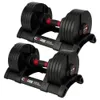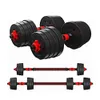This 6 move workout strengthens the core, builds muscle and helps to lower hormonal stress
Try this stress-busting bodyweight workout
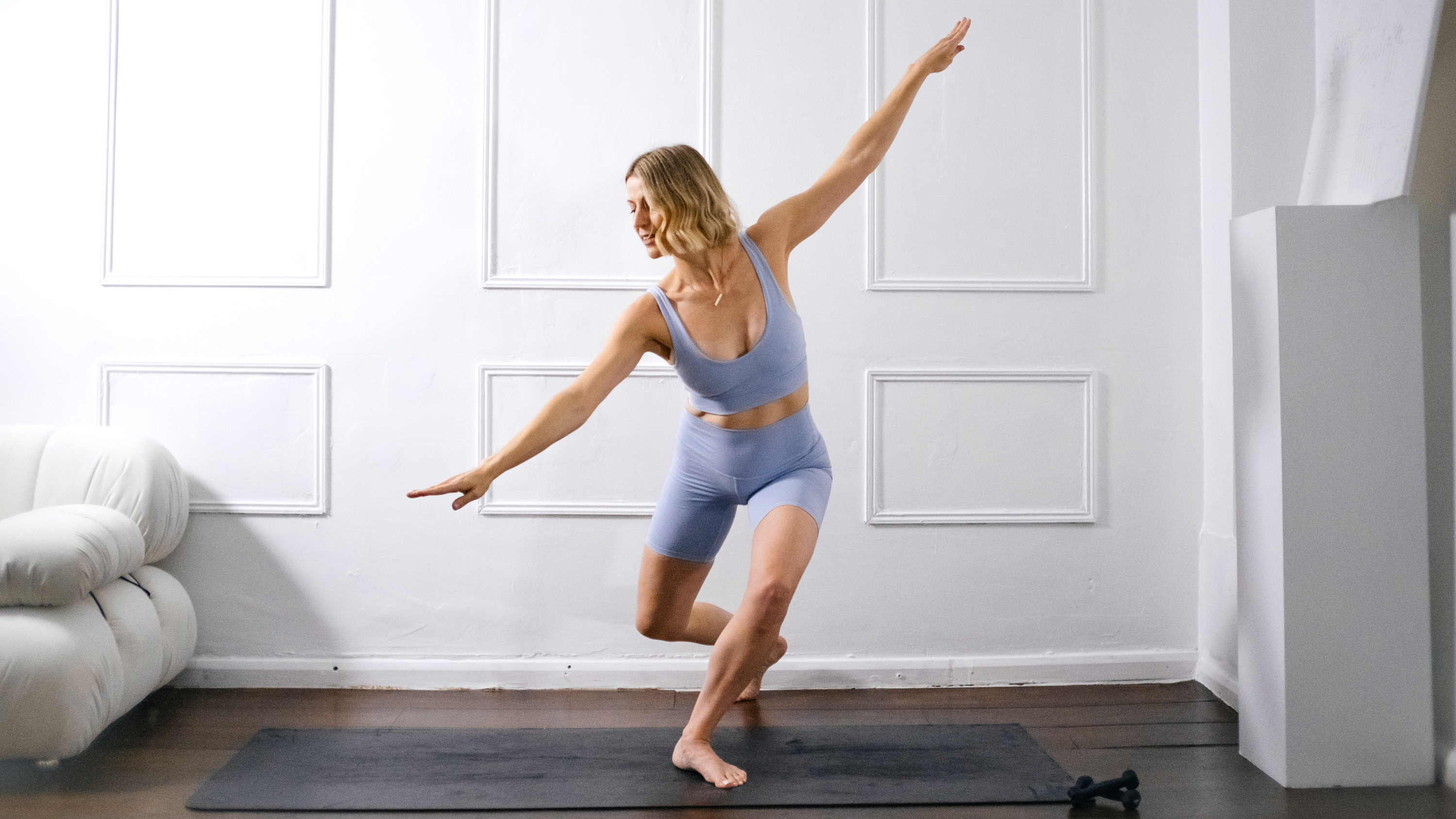
We’ve tried Barre before, in fact we even tried doing barre workouts every day for a week, and loved that it can be done from the comfort of your own home and work muscles all over the body without the addition of any fancy equipment. Plus, Barre is a great way to challenge the core and improve your posture and flexibility. But what if we told you it’s also a great stress busting workout?
After all, exercise is so much more than the physical results. Yes, it feels good to know you’ve worked hard after a session and start to see your body change aesthetically. But, working out can also do wonders for our overall wellbeing, and be a real help when it comes to managing things like hormones.
We spoke to Catie Miller, the trainer and founder of the Barre Series, to find out what relationship exercise has with managing hormonal stress and how to use Barre to do just that while we work our muscles in a low impact and effective way.
What is hormonal stress?
Hormones are a bit of a taboo topic but something we all experience. According to Miller, hormonal stress refers to the physical and psychological responses triggered by the release of certain hormones in the body, particularly those associated with the body's stress response.
“The primary hormones involved include cortisol, adrenaline (epinephrine), and noradrenaline (norepinephrine).
"These hormones are released by the adrenal glands in response to stressors, whether they are physical (e.g., injury, exercise) or psychological (e.g., anxiety, work pressure). The release of these hormones is part of the "fight-or-flight" response, preparing the body to deal with the perceived threat.
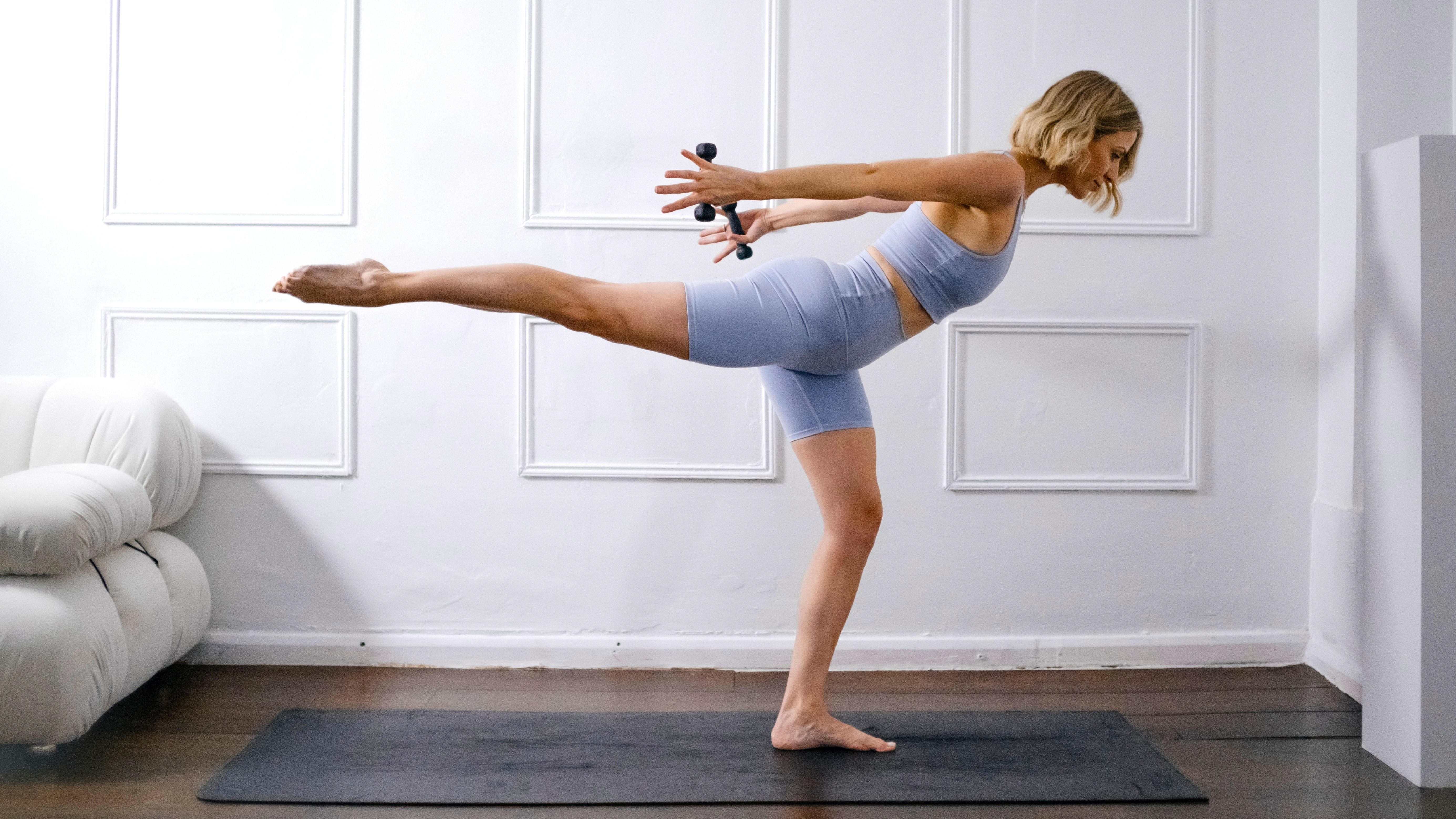
How can exercise help us manage hormonal stress?
Miller tells us that exercise is a powerful tool for managing hormonal stress for several reasons.
First of all, regular physical activity helps lower baseline cortisol levels, which reduces overall stress. It stimulates the production of endorphins known to be natural mood lifters, and enhances sleep quality, which is crucial for stress management and hormonal balance.
Sign up to get the BEST of Tom's Guide direct to your inbox.
Get instant access to breaking news, the hottest reviews, great deals and helpful tips.
Exercise also regulates other hormones, such as adrenaline, noradrenaline, and insulin, contributing to a more balanced hormonal environment.
“Regular exercise is linked to improved mental health, reducing symptoms of anxiety and depression, which are often associated with stress,” adds Miller.
What is the barre workout?
Miller has pieced together six exercises in total, each of which she will walk you through below so you can rest assured you learn the correct form for each move and get the most out of this workout.
“When you start out,” says Miller, “I would suggest using a steady surface, such as a chair, a wall, or a breakfast bar, to help keep you balanced. When you’re ready, all these exercises can also be performed freestanding, although this will require more core strength and good balance.”
You will notice in the images below that Miller uses some light dumbbells in her exercise. This isn't compulsory but if you fancy an extra challenge feel free to add in a pair of dumbbells in the one to three pound weight range.
High Knees / Up to 2 sets of 8 reps
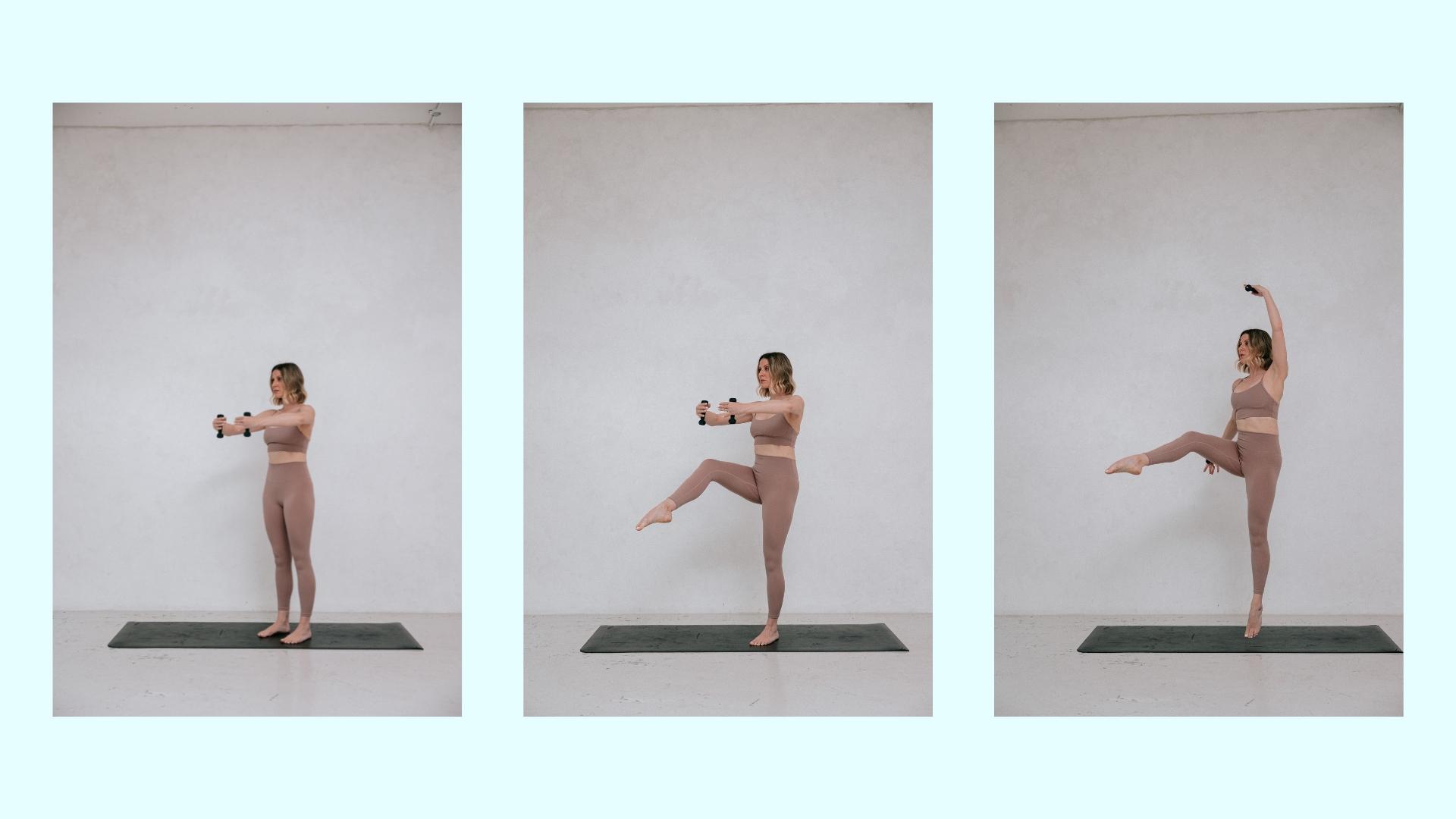
- Stand with your feet hip-width apart and your arms reached out in front of your shoulders in the first position.
- Brush your right leg out in front of you, bringing your thigh and knee towards your chest.
- Keeping your back straight and arms strong, continue this movement, alternating leg lifts with a steady rhythm and pace.
- Advancement: Work through the same exercise series with added weights (0.5–1 kg weights are great).
- Cardio challenge: Add a light jog, bringing your knees up towards your chest as you run on the spot. Swing your arms in opposition, ensuring they are placed with purpose.
Plié to Curtsy Lunge / 8–16 reps on each side
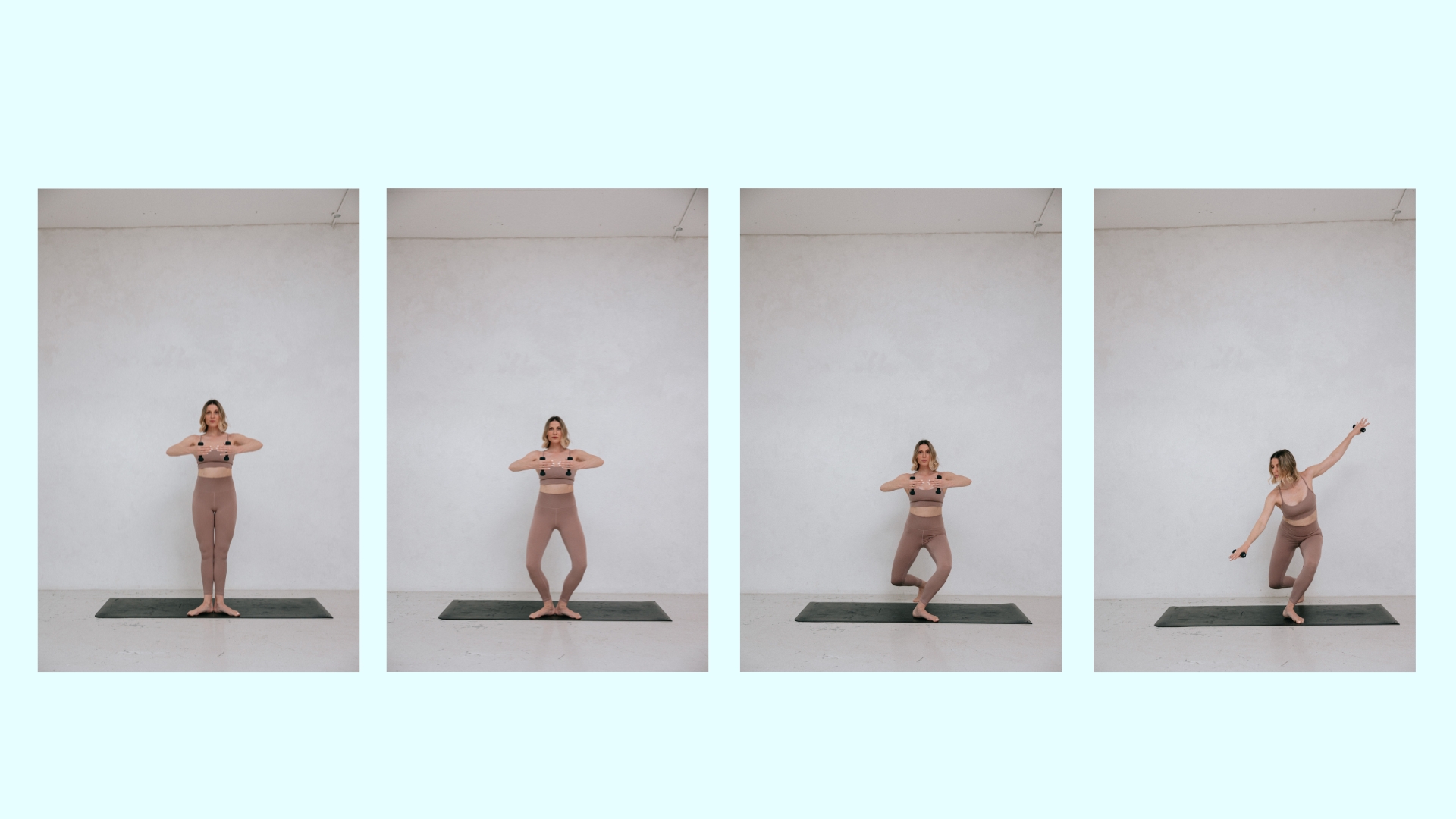
- Stand with your legs open to a wide second position. Make sure your feet are naturally turned out and your arms are stretched out to the side from your shoulders.
- Cross your foot behind, keeping it turned out, bend both knees in each position and bring your arms to first. The working leg is moving as the supporting leg is anchored into the floor. Ensure your arms are moving from second to first as you transition into the movements.
- Advancement: Continue for another 8–16 reps. Deepen your curtsy, hinge forward, reaching one arm long towards the floor as the other arm reaches in opposition above your head.
- Cardio challenge: To finish, take your curtsy straight to a passé (toe to knee), adding a hop at the top before you place it back down into curtsy. Feel and embrace the hamstring and quadriceps burn!
- Tip: Keep a proud chest, square shoulders and hips, and even weight on both feet.
Second Position Plié / 2 sets of 8 on each side
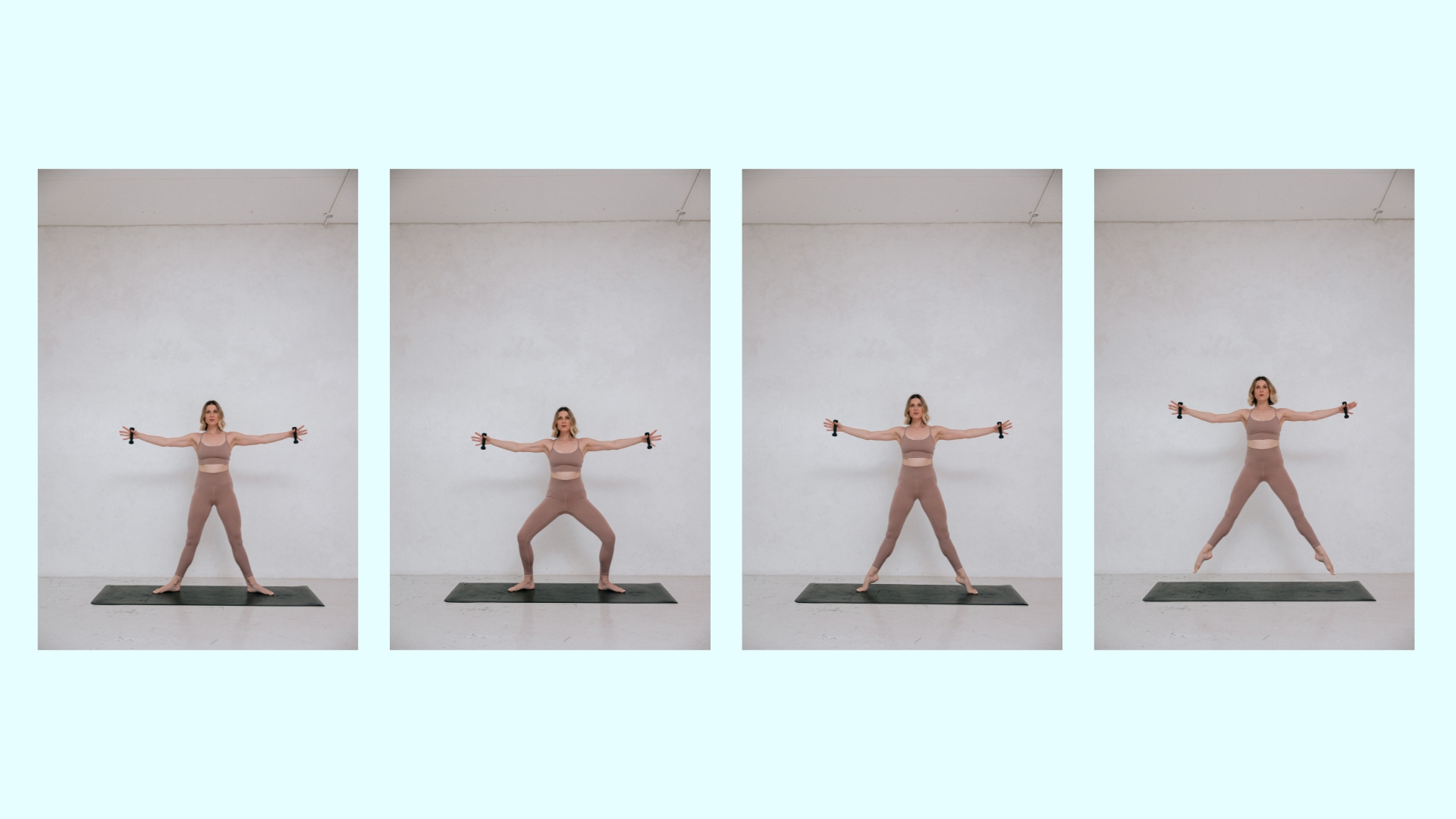
- Standing centre or side-on to your chair, open your feet wider than your hips to second position with your arms stretched out to the side from your shoulders.
- Plié all the way down into second position, pressing through your feet and ensuring your knees are laterally rotated out from the hip.
- During the plié, focus on lifting your abdominals in and up. As you stretch your legs, press through your feet, squeezing the backs of your legs (glutes and hamstrings) as you return to your starting position.
- Advancement: Add a relevé (this is a classical ballet term that means ‘raised’: it describes the action when a dancer rises up and stands on their toes) at the top of the move to create instability and test your core.
- Cardio challenge! Continue with the plié to relevé series, adding a jump at the top and softly landing through your feet into a deep plié.
- Extra challenge: Try all three levels back to back to increase your heart rate. Try slowing it down or picking up the tempo!
First to Second Plié / 8–16 reps
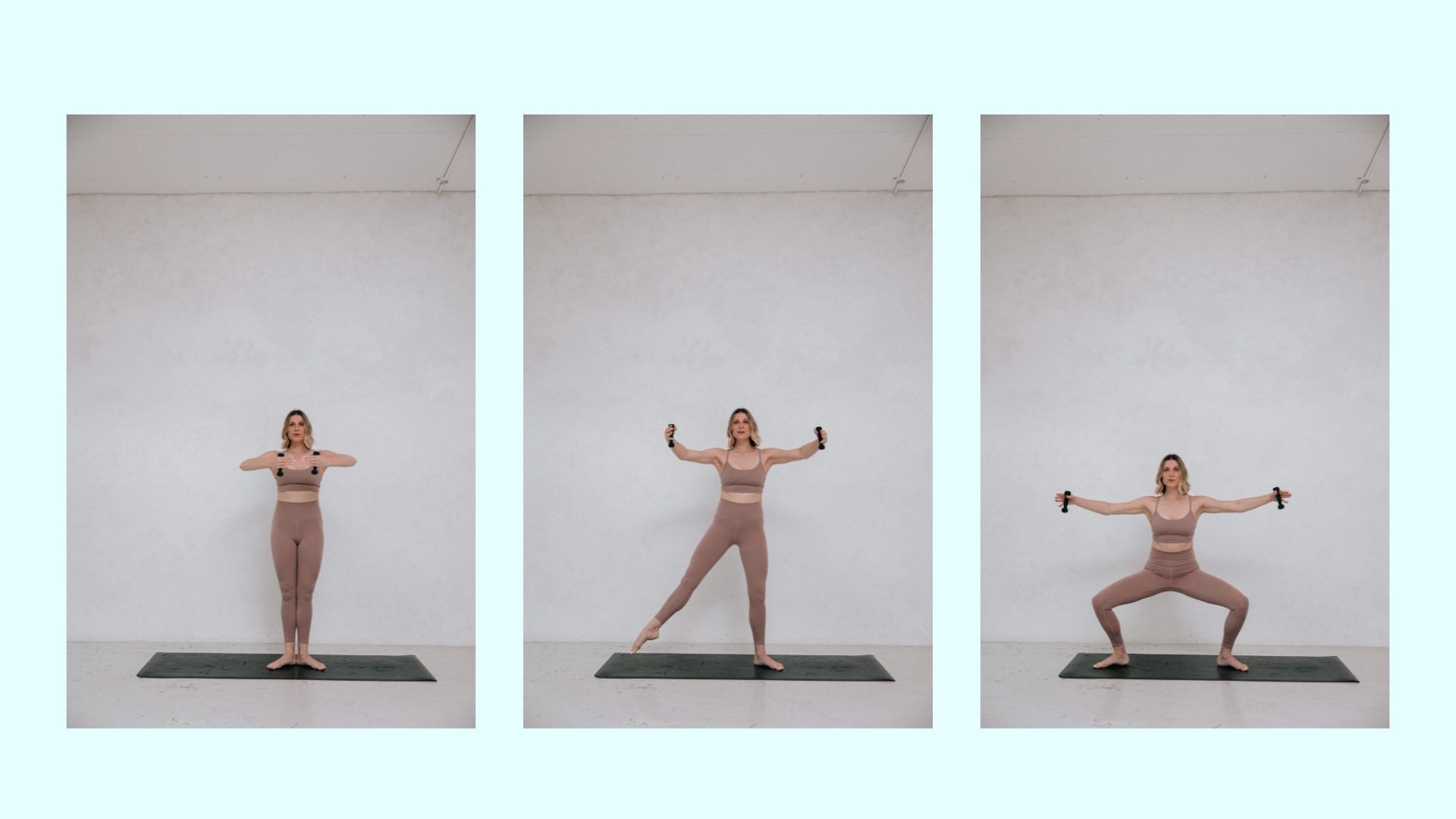
- Carrying on from the second position pliés, alternating legs, step your outside foot back in to join your heels together in first position.
- Continue this action 8–16 times, working on stepping out to a wide second position with your toes turned out, knees wrapping back, and your heels pressing into the floor.
- Advancement: Once your rhythm and technique is set, you can advance by taking large jumps from first to second position. Focus on landing softly through your feet and keeping your chest proud. This will have your legs burning in no time!
Passé with Lunge Back / 2 sets of 8 reps each side
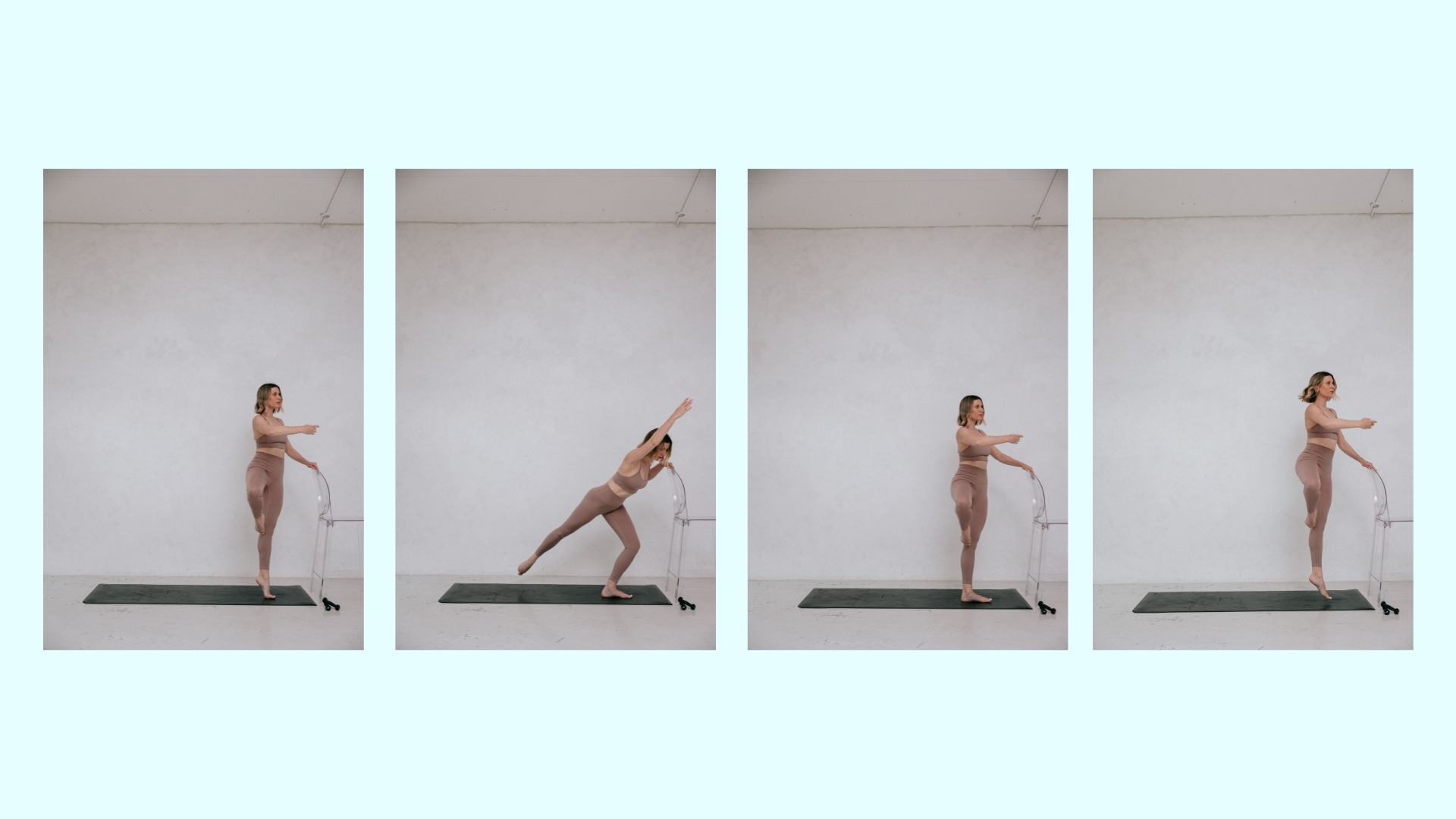
- Begin at an angle turned slightly into your chair. Starting with your feet in the first position, bring your outside leg to passé (toe to knee).
- Plié deep into your supporting leg, reaching your leg behind you towards the floor into a lunge as you hinge forward and reach your arm overhead. Straighten the supporting leg as you draw the working leg into passé and your arm back to first position.
- Straighten the supporting leg as you draw the working leg into passé and your arm back to first position.
- Advancement: Add a relevé on your supporting leg as you bring the working leg into passé. Repeat for 2 sets of 8 on each side.
- Cardio challenge! Continue the advancement series and add a hop at the top, landing softly through your working leg. Try all three levels back to back to increase your heart rate and work up that sweat!
- Tip: Focus on maintaining a neutral spine, especially as you extend both arm and leg.
Tricep Kickbacks / 8–16 reps
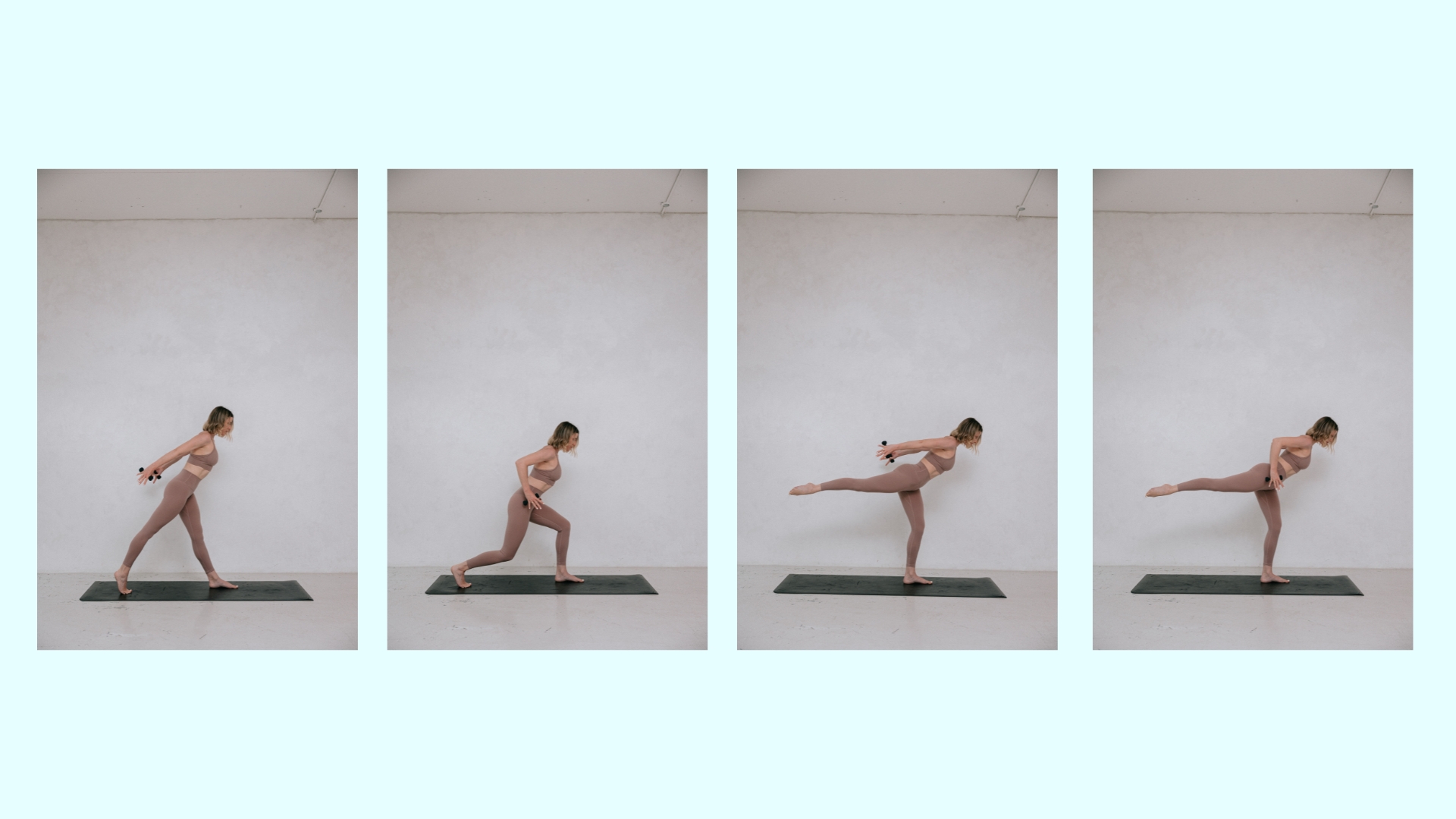
- Standing in the centre of the floor with your feet together, hinge forward from your hips, and extend one leg behind you to a lunge. Ensure your weight is forward into your front leg and the back leg is straight with little weight placed on it.
- Square off your hips and shoulders. Reaching both arms behind, above your hips, with your palms facing each other or upwards, bend and extend the arms, keeping your elbows lifted. The bend is small. Concentrate on extending your arms to engage the triceps fully.
- Advancement: Add a full range lunge, driving your back knee towards the floor when you bend your arms and straightening your legs when you extend your arms.
- Cardio challenge: Continue with the lunge/tricep kick-backs and add a lift of the back leg off the floor. Think about extending the leg longer, not higher, to activate your core and glutes for an added burn! Hold your leg and arms off the floor for your final balance!
- Extra challenge: Try all three levels back to back to increase your heart rate. Try slowing it down or picking up the tempo!
More from Tom's Guide
- A yoga instructor shares a 12-minute beginner-friendly workout that also reduces back pain
- I tried this 10-minute high-intensity core workout to carve my abs and obliques — here's what happened
- Can eating before a workout boost fat loss or should you train on an empty stomach? We asked the experts

Jessica has been a fitness writer at Tom’s Guide since 2023, bringing three years of experience writing about health, fitness, and the great outdoors. Her passion for exercise began during her childhood, where she spent weekends hiking and competing in local athletics club events. After earning a master’s degree in journalism from Cardiff University, Jessica found the perfect way to combine her love of storytelling and fitness into a career.
Jessica is passionate about testing fitness gear and tech, using her reviews to help readers make informed buying decisions. She ran her first marathon in April 2024, finishing it in 3 hours and 48 minutes. Through her training, she’s developed a deep understanding of what it takes to grow as a runner, from effective workouts and recovery techniques to selecting the right gear for every challenge.
When she’s not at her desk, Jessica enjoys spending time in the kitchen crafting new recipes, braving cold water swims and hiking.
